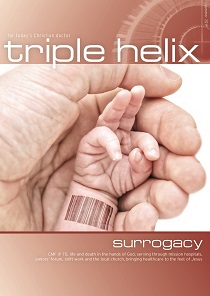The Supreme Court has ruled (1) that clinically-assisted nutrition and hydration (CANH) may be withdrawn from patients in prolonged disorders of consciousness (PDOC) without court approval, where the family and the clinicians agree it would be in the 'best interests' of the patient and the legal requirements of the 2005 Mental Capacity Act (MCA) (2) have been followed. This will apply to:
- Patients with progressive neurodegenerative conditions (eg. Parkinson's or Huntington's disease).
- Patients with multiple comorbidities and/or frailty that are likely to shorten life expectancy, or who have suffered a brain injury (eg. a catastrophic stroke).
- Previously healthy patients with PDOC who are in a vegetative state (VS) or minimally conscious state (MCS) following a sudden-onset brain injury (eg. a traumatic brain injury after a road traffic accident).
The British Medical Association and Royal College of Physicians (RCP) have issued joint guidance (3) in response to this ruling.
The guidance addresses some, bu no means all, of the conerns raised. So, how shall we now respond?
CMF is forming a working group of clinicians and lawyers:
- To monitor the effect of the new guidance in practice: how many patients will have their lives ended in this way? How will their deaths be recorded? Will the ruling open the door to 'euthanasia by stealth' for other categories of patient? (4)
- To consider whether 'consensus' between family and clinicians that CANH be withdrawn truly meets the purpose of the MCA in protecting the rights of the incapacitated person. For example, is it within the boundaries of their professional responsibilities, competencies and resources for clinicians to evaluate conflicts of interest between the incapacitated patient and their family?
- To consider whether to press for an amendment to Section 4 of the MCA to provide that decisions to withhold or withdraw CANH from patients who are not at the end of life must be subject to application to the court for a declaration of lawfulness, irrespective of whether family and clinicians are in agreement.
For more information on CANH see CMF File: 69, No water, no life.
Review by Rick Thomas, CMF Public Policy Researcher
































